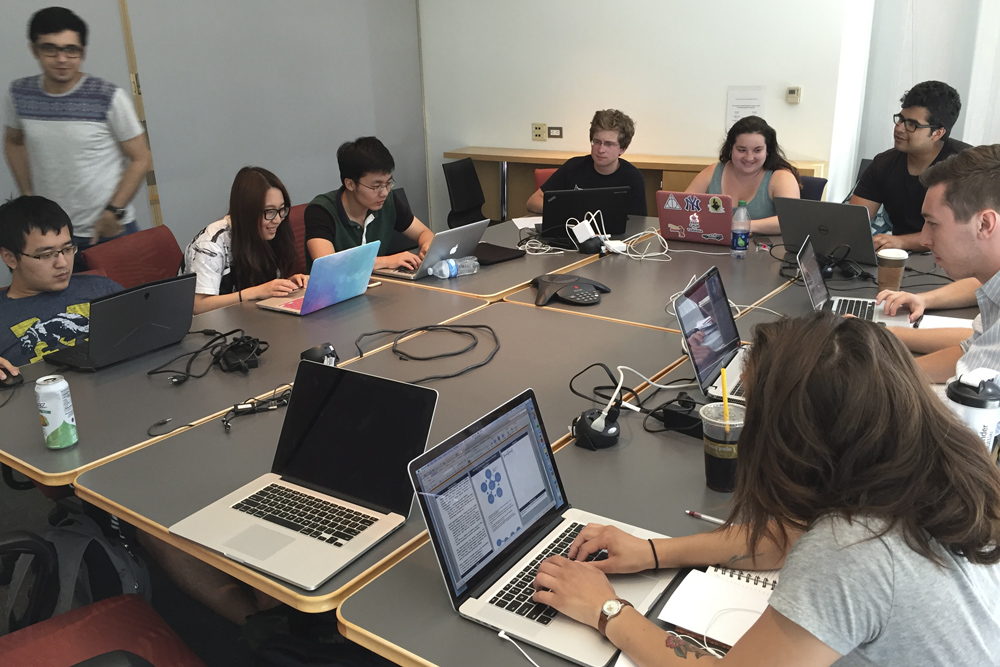Summer Bootcamp prepares undergraduates for work with big data
The Big Data Summer Bootcamp is a six-week interdisciplinary training and research program at the University of Michigan.

 Enlarge
Enlarge
Datasets of enormous complexity and size are being generated in the diverse areas of genomics, imaging, electronic health records, social media and environmental monitoring. The insights obtained from these massive data sources will inform the prevention and treatment of human diseases and play a major role in biology, medicine, and public health in the coming decade. But more training is needed to prepare the next generation of leaders to tackle these challenges.
The Big Data Summer Bootcamp is a six-week interdisciplinary training and research program at the University of Michigan, co-designed by Prof. Barzan Mozafari and his collaborators from other departments to introduce undergraduate students to the growing number of approaches to big data.
Over the course of the camp, students gain a comprehensive overview of the field of big data by attending a variety of lectures in the mornings and working on research projects in the afternoons. Each Friday, the students take part in professional preparation activities and attend journey lectures, which showcase the academic journeys of researchers at different stages of their careers in data science, at lunch.
At the conclusion of the bootcamp, the students present their work and learn about other student projects at a research symposium and attend a professional development workshop. Throughout the program, the students have the unique opportunity to interact with distinguished faculty and graduate students from the U-M departments of biostatistics, information science, statistics, and electrical engineering and computer science.
The application for the 2016 summer bootcamp opened on December 15, 2015 and closed on March 15, 2016. The camp received 228 applications and admitted 45 students from diverse backgrounds: 46.6% male, 53.4% female, and 22.2% underrepresented minorities majoring in Computer Science, Math, Biology, Statistics, Biostatistics and other disciplines. 20% of the students were from UM and 80% were from other schools in the US or abroad. There is no cost to attend. All accepted participants receive a stipend to cover their travel, housing, and meals.
Prof. Mozafari received his PhD in Computer Science from the University of California Los Angeles in 2011. He joined the faculty of CSE at the University of Michigan in 2013 after two years as a postdoctoral researcher at Massachusetts Institute of Technology in the CSAIL Lab. Prof. Mozafari has won several awards and fellowships, including Best Paper Awards at SIGMOD 2012 and EuroSys 2013. He was awarded an NSF CAREER award in 2016. He is affiliated with the Database Research Group and the Software Systems Lab in CSE and the Center for Data-Driven Computational Physics at the Michigan Institute for Computational Discovery and Engineering (MICDE).